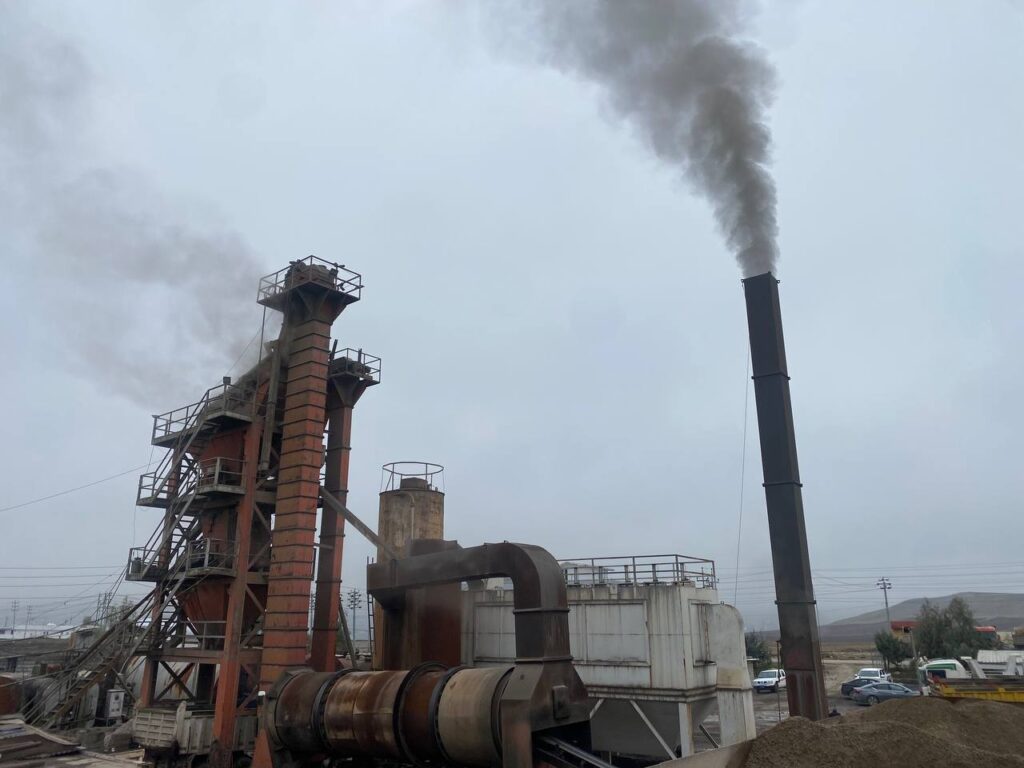IOM Iraq Leverages Mobility Data to Better Understand COVID-19 Impact [EN/AR/KU]
Erbil — As of 26 April, 1,763 confirmed cases of COVID-19 and 86 deaths had been reported in Iraq. The International Organization for Migration (IOM) in Iraq has completed a study analyzing the status of healthcare services, public awareness levels, access to services, movement restrictions and the overall economic impact of the COVID-19 pandemic across the country.
Data for the study was collected by the IOM Displacement Tracking Matrix (DTM) in 401 sub-districts across Iraq’s 18 governorates. In early April, IOM Iraq’s Rapid Assessment and Response Teams conducted phone interviews interviews with its well-established network of key informants (KIs) that includes community leaders, mukhtars, local authorities and security forces.
When KIs were asked to report what they thought would be the top three main issues that would be caused by the COVID-19 crisis in their subdistrict, the most commonly reported issues were a delay in the school year (reported by 89% KIs), followed by a loss of livelihoods (81%) and financial impact (44%).
At the national level, the situation relating to employment is severe. In 68 per cent of subdistricts, KIs reported that the majority of people in their areas have lost their jobs and are facing financial problems as a result. This is apparently most severe in Anbar (96% of KIs reporting), Basrah (94%), and Dahuk (94%) governorates. Only 4 per cent of KIs, located in Baghdad and Ninewa, reported that the majority of people in their subdistrict can work from home and are still receiving their salaries.
KIs in 88 per cent of subdistricts reported that some population groups are more severely affected by the COVID-19 curfew than others; the three groups most commonly reported to be more affected are daily labourers, followed by Internally Displaced Persons (IDPs) and then the elderly. In 73 per cent of subdistricts, however, KIs reported that provisions are being made to assist the most impacted groups; most assistance comes from the host community, followed by the national government and then the local government.
“The findings of this study will improve our understanding of how the evolving COVID-19 situation is impacting daily life,” said IOM Iraq Chief of Mission Gerard Waite. “A solid evidence base will better inform our response to this crisis, in support of migrants, internally displaced persons, host communities and other vulnerable populations.”
The data also show that the majority of public healthcare clinics are open and accessible across the country but residents of Thi Qar, Basrah and Missan governorates may have greater trouble accessing healthcare services when needed (with public clinics closures reported in 40%, 18% and 13% of sub-districts respectively). Private clinics and hospitals are much less accessible at the national level, reportedly being closed in 43 per cent of subdistricts.
Following governmental orders to restrict movement, the findings confirm that schools and most government services are closed throughout the country. Psychosocial support services are also largely closed or otherwise unavailable.
Government-enforced curfews are reportedly well respected across the country, with KIs in 76 per cent of all sub-districts reporting that the majority of people stay at home and respect the curfew. However, there are some governorates where the curfew orders are not being well respected. This is a particular concern in Baghdad, where KIs in only 15 per cent of subdistricts reported that the majority respect the curfew and stay home.
“During these uncertain times, when data about the impact of the pandemic are scarce, this study has already given us some indications about the current state of available services, as well as the most common preoccupations among diverse Iraqi communities,” said Rose Marie Guevremont, IOM Iraq DTM Programme Coordinator. “There are similarities and differences to be noted between governorates, which confirms that a targeted approach should be prioritized. As we continue to develop our short, medium and long term response plans, this kind of information will be crucial.”
All information related to the study is available on a new COVID-19 dashboard hosted on the DTM Iraq website, along with the dataset and a summary of the main findings.
For more information please contact IOM Iraq’s Public Information Unit, Tel: +964 751 402 2811, Email: iraqpublicinfo@iom.int
![IOM Iraq Leverages Mobility Data to Better Understand COVID-19 Impact [EN/AR/KU]](https://reliefweb.int/sites/reliefweb.int/files/styles/m/public/resources-pdf-previews/1509389-IOM%20Iraq%20Leverages%20Mobility%20Data%20to%20Better%20Understand%20COVID%20EN.png)



